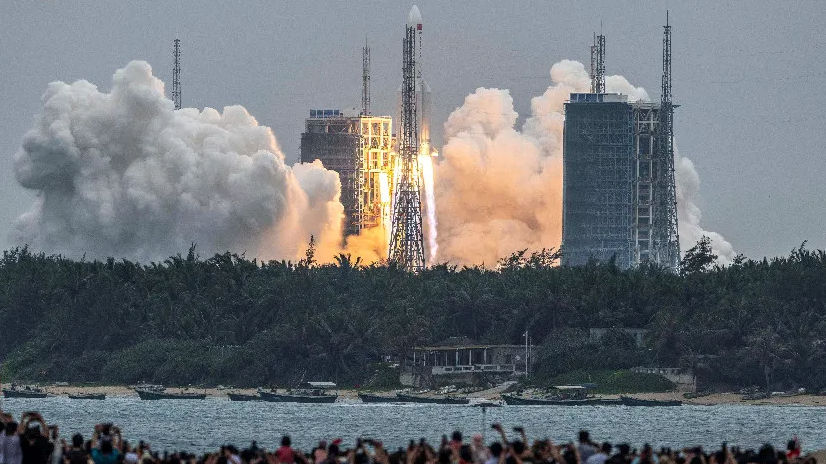American space agency National Aeronautics and Space Administration (NASA) on Sunday criticised China for not being able to meet “responsible standards” regarding its space debris, only a few hours after remnants of the country ‘s largest and uncontrollable rocket fell apart over the Indian Ocean near the Maldives.
The debris from the rocket Long March 5B re-entered the atmosphere of the Earth at 10:24 am Beijing time and fell into an open sea are at 72.47 degrees east longitude and 2.65 degrees north latitude, said China’s Manned Space Engineering Office.
Also read | Chinese rocket makes uncontrollable re-entry to Earth: All you need to know
In response the space programme, Bill Nelson, NASA Administrator, in a statement said, “It is clear that China is failing to meet responsible standards regarding their space debris.” “Spacefaring nations must minimize the risks to people and property on Earth of re-entries of space objects and maximize transparency regarding those operations”.
“It is critical that China and all spacefaring nations and commercial entities act responsibly and transparently in space to ensure the safety, stability, security, and long-term sustainability of outer space activities,” said Nelson, also the former Florida senator and astronaut who was picked for the role in March.
“It is a great honor to lead @NASA, a can-do agency that accomplishes so much! I look forward to a robust future as we continue to explore the heavens,” said Nelson in a tweet on May 4,
Also read | ‘Artificial aurora’ to be seen over eastern US due to NASA launch on Saturday
NASA’s new administrator has given a lot of emphasis on tackling climate and diversifying the agency’s workforce, but also encompassing on whether the US can put astronauts on the moon by 2024.
The rocket launched the first module of China’s new Tianhe space station into Earth’s orbit on April 29. At around 100 feet tall and weighing about 22 metric tonnes, the rocket stage is one of the largest objects to ever re-enter the Earth’s atmosphere on an uncontrolled trajectory.







